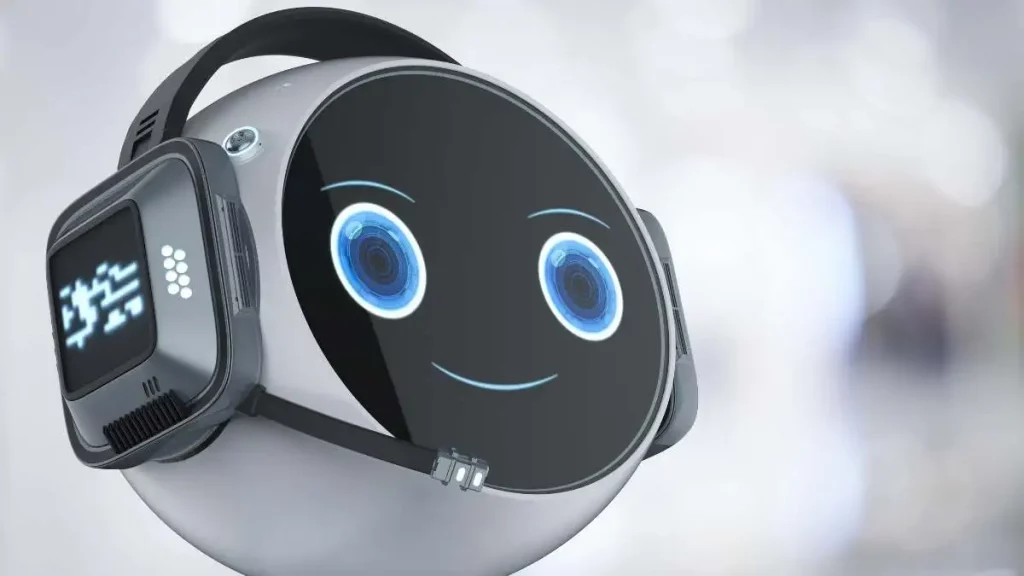AI Agents in customer service are setting new standards for Customer Experience.
During the Athics webinar “AI Customer Experience”, we explored how artificial intelligence is revolutionizing interactions between companies and customers alongside Letizia Olivari, Director of CMI – Customer Management Insights, and Luigi Marzorati, IT Director of Vega Carburanti.
Updated on June 11th 2025
Estimated reading time: 7 minutes
Table of contents
- AI Agents in Customer Service
- How Fast Has This Change Happened?
- AI Agents in Vega Carburanti’s Customer Service
- Do AI Agents in Customer Service Increase or Decrease the Human Element in Customer Care?
- Despite AI’s Potential, Many Companies Hesitate to Adopt It
- Read Vega Carburanti’s Success Story
- How Do You Envision the Future of Customer Service?
- Insights
- Conclusions
- Faqs about Ai Agents in Customer Service
AI Agents in Customer Service

We are witnessing a transformation in the traditional customer care model from reactive to proactive. It is no longer just about responding quickly to customer requests but anticipating their needs and offering personalized solutions before they even articulate them. This shift to a proactive model is made possible by advanced technologies like AI agents in customer service—systems capable of executing tasks autonomously, making decisions, and interacting with their environment.
How Fast Has This Change Happened?
As Letizia Olivari highlighted: “The change is happening at two different speeds: customers increasingly expect immediacy, personalization, and a seamless experience, while many companies still struggle to integrate information and make the most of available data. Proactivity, however, is a must-have, as customer care is a strategic touchpoint for customer satisfaction and a necessary step in transforming it into a profit center.”
“Customer service has become the heart of the customer relationship,” emphasized Luigi Marzorati. It is no longer just a place where problems are solved but where value is built, and relationships are strengthened. In the sector where Vega Carburanti operates, for example, changing the daily spending limit on a fuel card often leads to several customer inquiries that need to be addressed to complete the process. Proactive AI agents in customer service can help promote new products, such as new cards with higher spending limits or features that anticipate customer needs.
AI Agents in Vega Carburanti’s Customer Service
A concrete example of this evolution comes from Vega Carburanti, which has implemented Bruno, the company’s AI agent in customer service, to optimize the customer experience. Thanks to its integration with the corporate CRM, the AI agent not only answers administrative questions but also provides personalized suggestions and product information, transforming every interaction into an engagement opportunity. This ability to anticipate customer needs represents a true leap forward in customer service.
Do AI Agents in Customer Service Increase or Decrease the Human Element in Customer Care?
According to Deloitte’s study “The AI Paradox – How Technology Can Enhance Humanity”, AI makes the user experience more human through advanced personalization, support for agents in fostering more empathetic interactions, and facilitating creativity by freeing up time for strategic and relational activities.
From a technological perspective, Letizia Olivari believes AI can certainly be used to increase the human element in customer service because it simplifies the work of agents, allowing them to focus on customer relationships, understanding real needs, and more.
However, two major obstacles remain. The first is the incorrect approach some companies take, viewing technology merely as a way to cut staffing costs. The second is the level of training and relational skills of customer service agents, which need to be strengthened and incentivized.
In Vega Carburanti’s experience, AI agents in customer service have helped accelerate the introduction of customer-focused innovations while working in complementarity with human agents. The virtual assistant makes these updates available not only to customers but also to agents, simplifying the learning process for complex technical knowledge—such as fuel-related topics—even for those who are not chemistry experts.
Despite AI’s Potential, Many Companies Hesitate to Adopt It
According to Deloitte’s “The AI Paradox” study, 90% of customer experience professionals recognize the value of AI, but only 30% actually use it. The reason? Difficulty in identifying concrete use cases and the lack of suitable technology partners.
Luigi Marzorati believes the real challenge lies in finding industry players capable of guiding companies in adopting AI, particularly for small and medium-sized enterprises. Vega was fortunate—and skilled enough—to select a partner like Athics, which advised and guided them through the process.
Read Vega Carburanti’s Success Story
Vega’s experience demonstrates that when implemented correctly, AI does not replace humans but enhances them, allowing agents to focus on customer relationships and improving service. The key to success lies in a strategic approach: targeted integration and proper training for agents can make the difference between effective adoption and wasted investment.
How Do You Envision the Future of Customer Service?

According to Letizia Olivari, the future of customer service looks very much like what Vega Carburanti has already achieved: a system where automation is not just an initial filter but a true, effective support mechanism for handling all simple and repetitive requests. un vero e proprio supporto efficace per gestire tutte le richieste semplici e ripetitive.
AI agents in customer service will strike the perfect balance between intelligent automation and human empathy, where technology simplifies and enhances the experience without ever replacing the value of human contact when it truly matters.
In conclusion, Luigi Marzorati:
“The future of customer service is already here, but it’s up to us to shape it. Artificial intelligence has unlocked previously unimaginable possibilities, making it easier to create tools that enable smoother and smarter interactions between companies and customers. However, the main challenge remains finding the right balance between business needs and customer expectations.
To achieve this, the key is personalization. We must not standardize the experience but tailor it as much as possible. AI agents in customer service allow us to collect and interpret information in real time, providing increasingly relevant and personalized responses and solutions.”
Insights
How to Implement an AI Agent in Customer
5 practical steps
- Define the objectives
Start from the needs of your customer service: do you want to reduce response times? Automate the most frequent requests? Offer 24/7 support? Clarifying these objectives will guide you in choosing the most suitable AI agent.
- Map touchpoints and FAQs
Analyze recurring conversations with customers and identify contact channels (e.g. website, WhatsApp, app). This will allow you to build a targeted knowledge base to integrate into the agent.
- Choose the right platform
Evaluate platforms that offer no-code options for quick configuration and that support integrations with CRM, ticketing and multi-channel chatbots (whatsapp)
- Train and test the agent
Provide the AI with concrete examples of requests and responses, simulating real conversations. Test the agent’s behavior with a small group of users to optimize tone, precision and completeness.
- Monitor and improve
After release, analyze agent performance: resolution rate, escalations to live agents, user feedback. Use this data to continuously update content and conversation rules.
Conclusions
The adoption of AI agents in customer service is a concrete strategic lever to improve the user experience, optimize processes and strengthen the relationship between brand and customer. As demonstrated by the experience of Vega Carburanti, an effective implementation comes from a clear vision, the choice of the right partner and an intelligent integration into business flows. AI agents do not replace human interaction, but enhance it, freeing up time for high value-added activities. The future of customer care has already begun, and it depends on the ability of companies to seize the potential of artificial intelligence to build a more personalized, proactive and human service.
Faqs about Ai Agents in Customer Service
AI agents are virtual assistants based on artificial intelligence that interact with customers autonomously, answering frequently asked questions, managing simple requests and providing personalized support 24/7.
Unlike chatbots based on predefined rules, AI agents understand natural language, learn from interactions and are able to make contextual decisions, improving the quality and fluidity of the dialogue with the customer.
No, their role is complementary. AI agents manage the most repetitive and operational requests, while human operators focus on complex cases or interactions that require empathy, listening and advanced decision-making skills.
It depends on the complexity of the project and the level of customization required. On average, an initial implementation can take from a few weeks to a few months, especially if you start from an already well-structured analysis of data and touchpoints.
Updated on June 11th 2025

